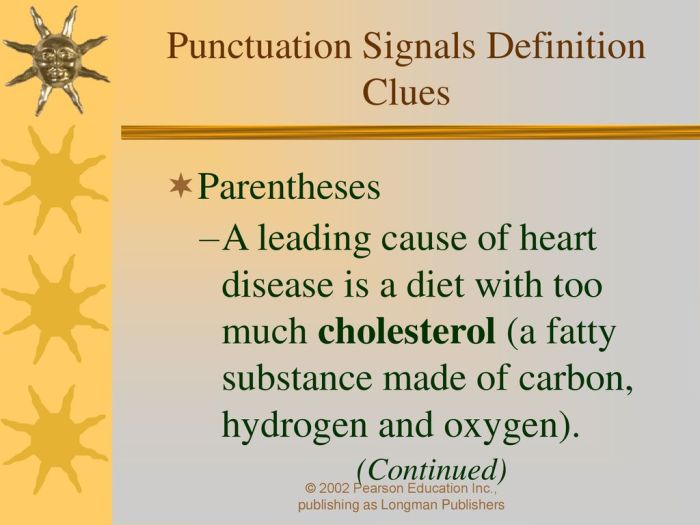In the realm of medical writing, precision is paramount, and punctuation plays a pivotal role in ensuring clarity and accuracy. A primer for the punctuation of heart disease serves as an invaluable guide, navigating the intricacies of medical terminology and providing essential guidelines for effective communication.
This comprehensive resource delves into the general principles of punctuation, addressing the nuances of commas, periods, semicolons, and colons in medical texts. It then focuses specifically on the unique challenges posed by heart disease writing, including the use of abbreviations, acronyms, and symbols.
1. Introduction
Punctuation plays a crucial role in medical writing, ensuring clarity, accuracy, and readability. The unique challenges of medical texts, such as the use of complex terminology and abbreviations, necessitate a comprehensive understanding of punctuation rules.
This primer introduces the concept of “a primer for the punctuation of heart disease,” providing guidance on the specific punctuation issues that arise in this medical field.
2. General Principles of Punctuation in Medical Writing

Effective punctuation in medical writing involves adhering to general principles, including the proper use of:
- Commas: Separate items in a list, introductory phrases, and nonessential clauses.
- Periods: End sentences, abbreviate terms, and indicate decimal points.
- Semicolons: Separate independent clauses closely related in thought.
- Colons: Introduce lists, explanations, or quotations.
3. Specific Punctuation Issues in Heart Disease

Heart disease writing presents specific punctuation challenges, such as:
- Abbreviations and acronyms: Punctuate abbreviations and acronyms according to established conventions.
- Medical terms and phrases: Use punctuation to clarify complex medical terms and phrases.
- Numbers and units: Punctuate numbers and units of measurement correctly.
4. Tips for Effective Punctuation

To improve punctuation in medical writing, consider the following tips:
- Use punctuation to enhance clarity and accuracy.
- Punctuate medical terms and phrases consistently.
- Refer to established style guides for specific punctuation rules.
FAQ Corner: A Primer For The Punctuation Of Heart Disease
What is the significance of punctuation in medical writing?
Punctuation plays a crucial role in medical writing by clarifying the meaning of sentences, preventing misinterpretation, and ensuring the accurate conveyance of medical information.
How does this primer address the specific challenges of punctuating heart disease-related texts?
This primer provides guidance on the use of punctuation in the context of heart disease, including the handling of abbreviations, acronyms, and symbols, which are prevalent in this field.
What are some tips for effective punctuation in medical writing?
Effective punctuation involves using commas to separate elements in a series, periods to end sentences, semicolons to join independent clauses, and colons to introduce lists or explanations.